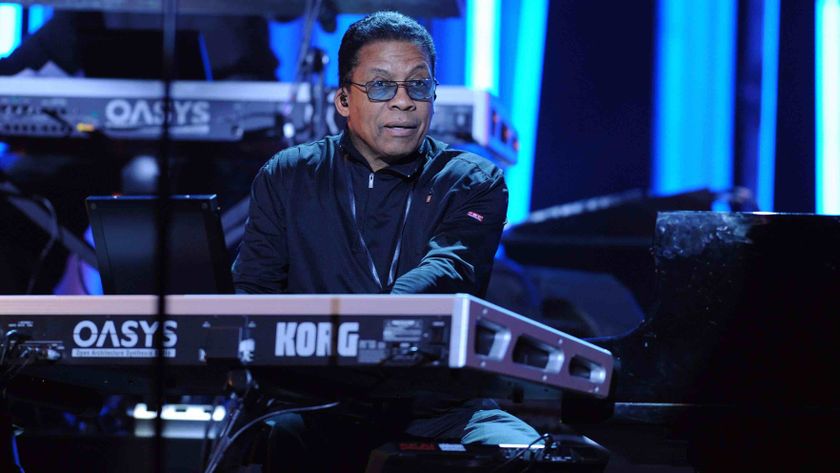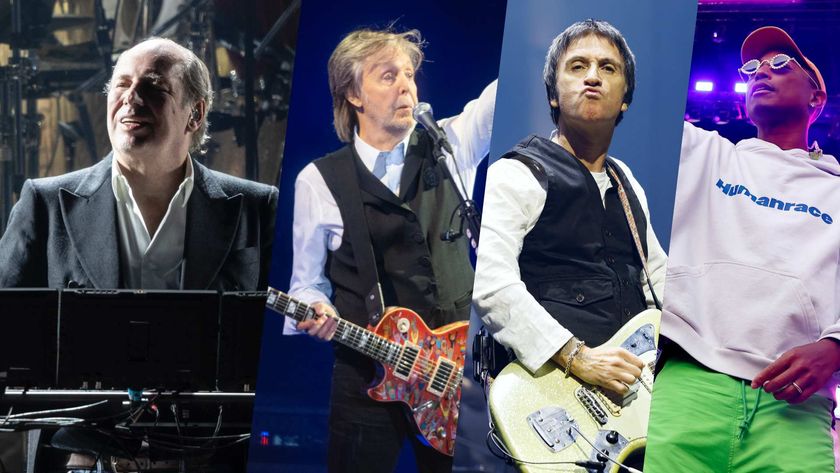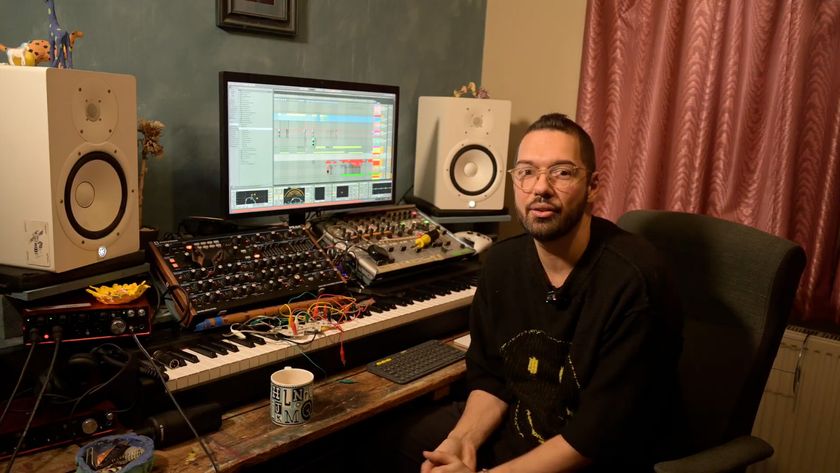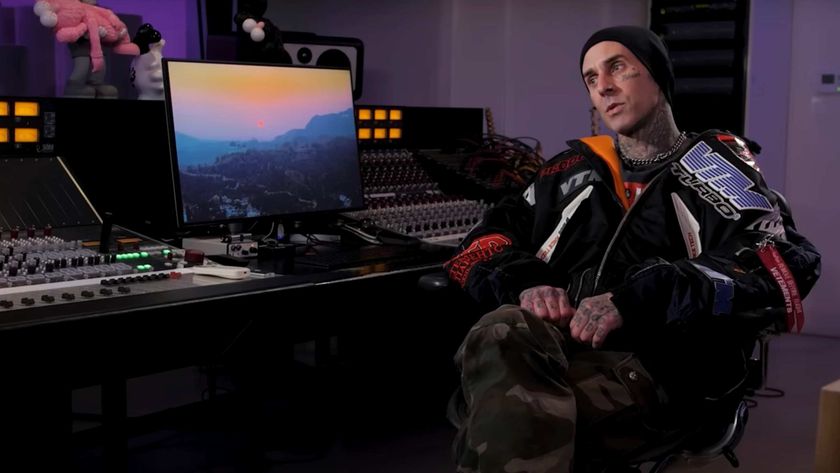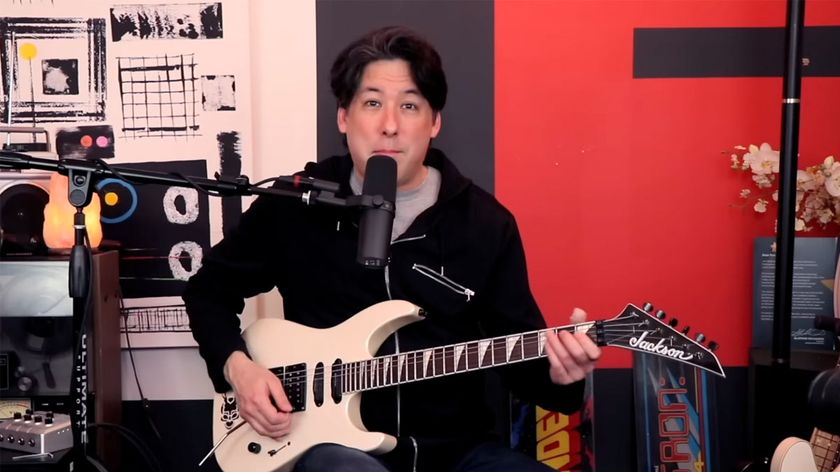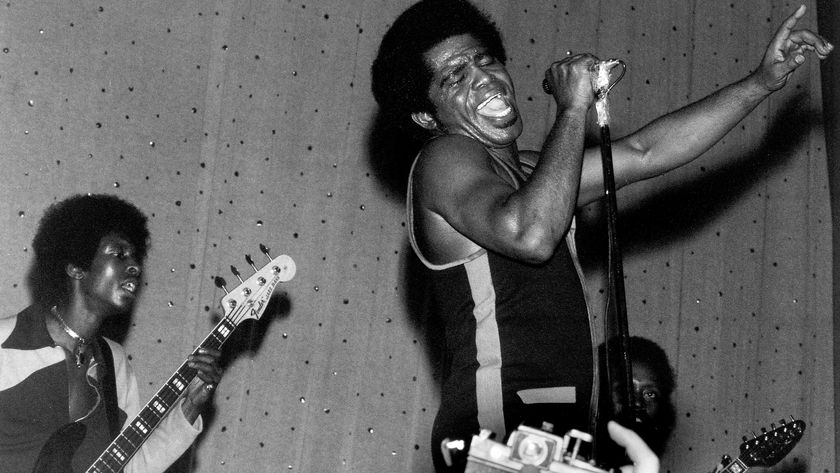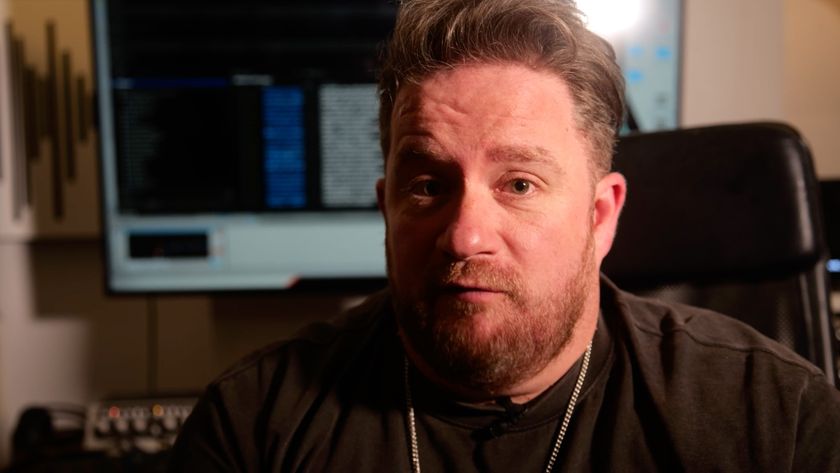Rocco Prestia: “If you attack everything like it’s the first time you ever played it, it’ll stay fresh and will lead to new ideas”
Tower Of Power's bass maestro on technique, tone and communication
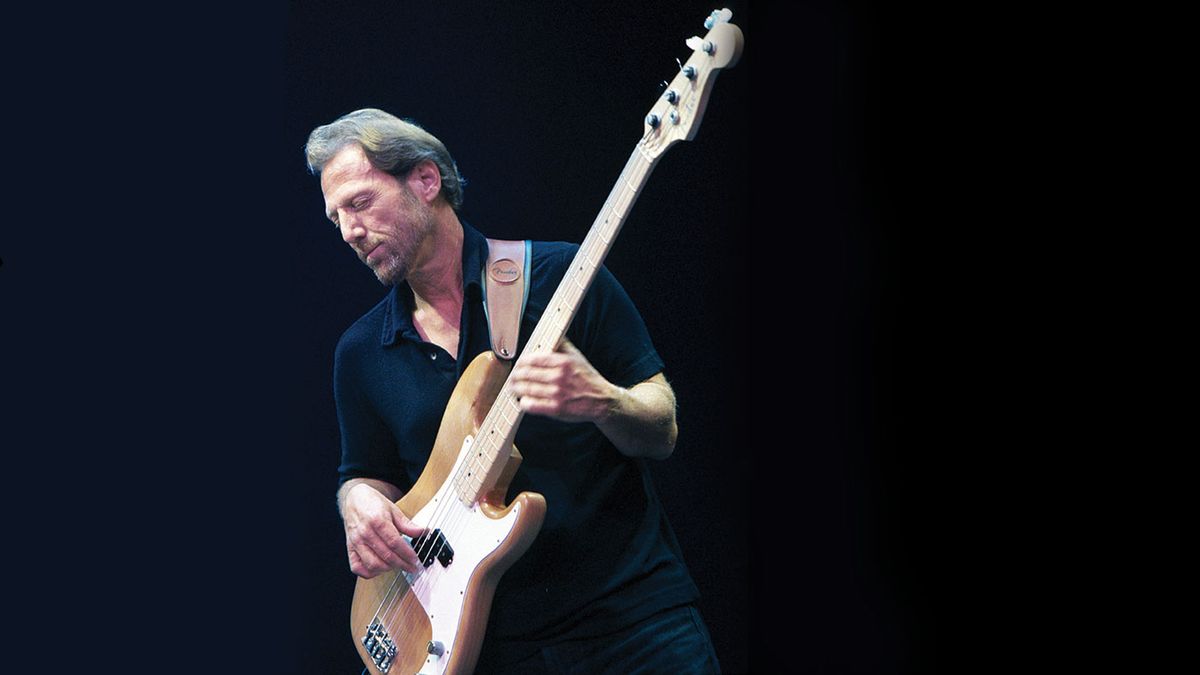
Tower Of Power are one of the coolest bands ever formed, not just because their bass player Francis ‘Rocco’ Prestia is a man whose technique is slicker than an eel in Vaseline, but because their soulful, groovy blend of funk and old-school R&B has been on heavy rotation for most thinking music lovers for almost 50 (yep - count ’em) years.
Although he’s 66 years old and has survived a brush or two with the surgeon’s knife over the years, Prestia always puts on a killer performance, playing each song as if it’s the first time it’s ever been performed.
His bass style, the band’s secret weapon, has to be seen and heard to be believed, based on superdexterous picking, heavy muting and fills that defy explanation - all delivered with supreme accuracy. TOP’s best-known song, What Is Hip?, also happens to be a perfect showcase for his playing: check it out before reading on, if you don’t have it running through your head already.
When we spoke to him, Prestia (“You can call me Francis or Rocco, whatever you prefer!” he chuckles) is on fine form. Quiet and unassuming in person, as opposed to the funk force he becomes on stage, the man is an example of how to be both super-talented and super-likeable.
Being on the road is what keeps your chops up! I try to keep everything fresh and play with enthusiasm
How do you go about keeping your bass chops up these days?
“Being on the road is what keeps your chops up! I try to keep everything fresh and play with enthusiasm. I want to play it right, so I go after it with that in mind. I want to hit everything correctly.”
What gear are you using on the road?
Get the MusicRadar Newsletter
Want all the hottest music and gear news, reviews, deals, features and more, direct to your inbox? Sign up here.
“I’m using TC Electronic amps and ESP four-string basses. I’m real happy with them. No pedals - I never went down that road. [The ESP bass] is their LTD model and is very light, with an ebony fingerboard. I really appreciate that. It feels really good in my hands, which is all that matters to me, and I can get the tone that I’m looking for.”
You’ve played with various basses over the years.
“I played Fender, then I played Fernandes for a bunch of years, and then I went to Conklin and now I’m with ESP. Certain things happen business-wise, and it gets to a point where I had to move on. It’s not because I hated the company, or because I hated the basses, or anything - it’s just that things evolve to a point where something didn’t happen the way it was supposed to, and I had to move on.”

Bass beginnings
How did you get into bass?
“I joined Tower Of Power in 1965, when I was 14 years old. Before that I played guitar, although I was one of those guitarists whose mother would say ‘It’s time to practise!’ rather than picking it up myself: I really wasn’t much of a guitar player.
“When I joined the band, a guy named Terry Saunders would come in and teach the band new songs every week. He was a jazz guy from the Bay Area. He assessed everybody, and when he came to me, he said ‘You play bass’. I looked at him and said, ‘What’s a bass?’ - but that’s how it happened. I took to bass really naturally.”
Do you remember what your first bass was like?
“That’s a good question... We went out and rented a bass: I thought it was a Fender, but they tell me it was something else. It doesn’t matter. It looked like a Fender. The first bass I actually bought was a Vox.”
How did you build your playing style?
Jamerson certainly bumped around, which is what I do as well. I play with a lot of muting and ghost notes
“I learned as I went along: we all did. Terry would teach us songs by the Rolling Stones and Paul Revere & The Raiders and the Animals, and all that kind of stuff from back in ’65. Once we got hip to soul music, which was a couple of years later, everything changed and we started adding horns. At that time, Emilio [Castillo, vocals/saxophone], who was the leader of the band, took charge of learning the songs and teaching them to the rest of us. It progressed from there.”
Which bassists influenced you back then?
“I was listening to a lot of Motown, a lot of Memphis. At that time, different cities were associated with different sounds. Philly soul, Stax, Muscle Shoals - you know what I mean? I was listening to all that, but I didn’t really know who the players were until much later. I learned about James Jamerson, Willie Weeks, Chuck Rainey and Duck Dunn after that.”
You soon evolved the super-fast, muted, staccato style for which you’re famous. Was anyone else playing bass that way at the time?
“I don’t know. Haha! Jamerson certainly bumped around, which is what I do as well. I play with a lot of muting and ghost notes, which is probably what made me a little different. I’ve talked to many bass players who have their own ways of muting. Those ways are foreign to me, because I mute with my left hand, but there are other ways of doing it.”
Where did the idea of such tight fretting hand muting come from?
“It just evolved. It wasn’t something I thought about. When [drummer] David Garibaldi joined the band in 1970, I had that Motown and Memphis feel, while he had all these incredible ideas and he was very busy. He plays a lot of ghosting as well. The two styles, when they mixed, just clicked.”
Do you use three picking fingers or only the two?
“Just two. That three-finger thing is very foreign to me, haha! I don’t get it, but if you can do it, God bless you.”
Busy bass
On your Fingerstyle Funk instructional video from 1993, you talk about being a busy bass player while not stepping on other musicians’ toes.
“That’s just natural for me, because I’m always playing with horns and a lot of vocals. You always have to be aware of that.”
Is What Is Hip? your best-known bass part?
What Is Hip was Garibaldi’s concept. He said he had this idea of the bass player droning on just one note
“Yes, people seem to associate me with that song. That was Garibaldi’s concept. He said he had this idea of the bass player droning on just one note, and everybody looked at him, like ‘What? That ain’t funky, what are you talking about?’ - but we did it, and that’s what came out.”
Do you play the songs live the same way that you recorded them?
“Everything I’ve ever recorded, from Still A Young Man to What Is Hip? - all those tunes evolve over time. Obviously the body of the tune stays the same in those songs, because it’s such a significant part, but we’re constantly remapping this or that. So no, I don’t play them exactly the same.”
Are you proud of those bass parts?
“I never really looked at it that way. I go back and listen, and I think ‘What the hell was I doing?’ Haha!”
How are your fingers holding up after all these years?
“Well, that’s always the question, isn’t it? Haha! You play till you can’t. But you know, they’re pretty good. I sometimes battle with cramps, but for the most part I can’t complain. I’m getting through the gig. What’s your solution for the cramps? Everybody thinks it’s about potassium, but for me, I take magnesium.
“Also, I was talking to the bassist with the Average White Band, and he told me about this stuff that he takes, because he was having problems with cramps, and it works real good. I also recently started warming up my hands and stretching before the show, and that really helps too. I rotate my arms, just to get the blood down into my fingers, and that’s about it.”
Have you always been a full-time musician?
“Yes, it’s pretty amazing when I think about it. Forty-nine years - they’ve gone by so quickly! We’re fortunate enough to have a real strong fanbase, and they keep us going.”

Career opportunities
What have been the high points of your career?
“Being appreciated by the bass community makes me proud: that’s a nice thing. I never really thought too much about it until we’d done a few albums, and one day I was talking to somebody and he said ‘What you guys are doing is pretty special’. I thought about it and realised that yes, what we do is kinda special.”
What’s next for Tower Of Power?
Communicate with your fellow musicians. It’s really important to treat them with respect
“We have a new album coming out in 2018, a double. It’s our first album in quite a while. It’s way overdue! I also really enjoyed recording my solo album, Everybody On The Bus! [1999]: I’d like to do another one sometime.”
David Garibaldi was injured in an accident earlier this year. Is he doing okay?
“Yes, he’s coming back. He and I definitely have a musical connection: we don’t have to talk too much to know when to accent a part, or move something around. It clicks pretty naturally: if it ain’t broke, don’t fix it.”
Do you have any advice for our readers?
“Oh... there are a lot of things. Try to keep yourself on an even keel when it comes to drugs and alcohol, which can get in the way. Keep your faith strong, whatever your faith may be. Stay dedicated and stay on track.
“One thing to keep in mind is the way you communicate with your fellow musicians. It’s really important to treat them with respect, even if you’re a quote-unquote superior player. Playing in an ensemble is what makes you great, as opposed to just good, because everybody’s got their part to play.”
And how do you stay inspired?
“Inspiration comes and goes. Sometimes you have to force it a little bit - but if you attack everything like it’s the first time you ever played it, it’ll stay fresh and will lead to new ideas.”


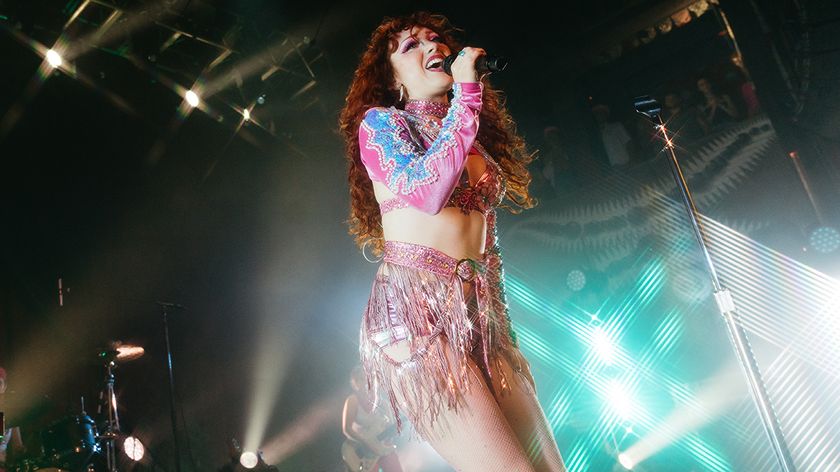
“The solo is very recognisable and crucial to the song”: How Chappell Roan’s former touring guitarist handled the Pink Pony Club guitar solo live on stage
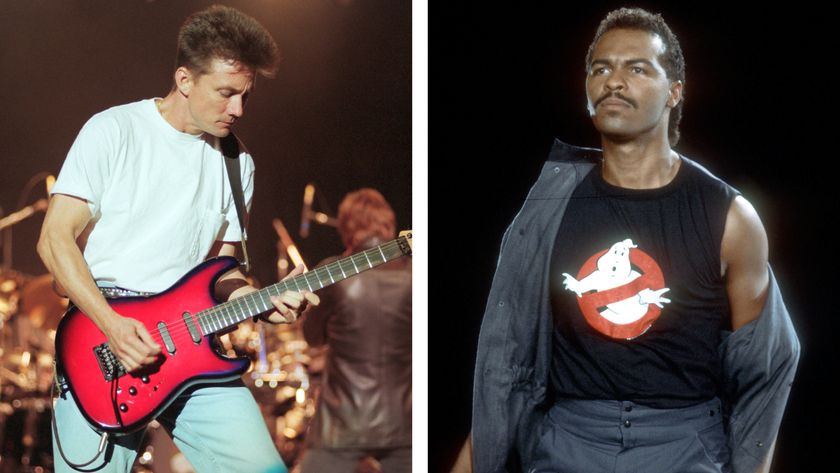
“I am under an NDA, but I think everybody knows what happened”: Former Huey Lewis and the News guitarist Chris Hayes on that Ghostbusters plagiarism dispute

